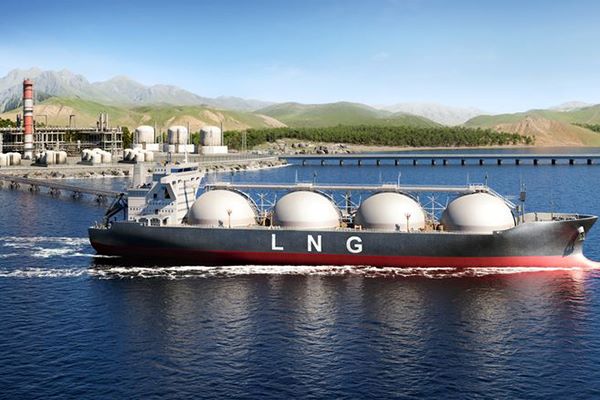ii view: Shell quarterly profit exceeds expectations
High gas fuel ambitions and with the shares comfortably outperforming rival BP so far in 2025. Buy, sell, or hold?
2nd May 2025 11:44
by Keith Bowman from interactive investor

First-quarter results to 31 March
- Adjusted profit of $5.6 billion, up from $3.7 billion in Q4 2024
- Quarterly share buyback of $3.5 billion, unchanged from Q4
- Quarterly dividend of $0.358 per share, unchanged from Q4
- Group net debt of $41.5 billion, up from $38.8 billion in Q4 2024
Chief executive Wael Sawan said:
"Shell delivered another solid set of results in the first quarter of 2025. We further strengthened our leading LNG business by completing the acquisition of Pavilion Energy, and high-graded our portfolio with the completion of the Nigeria onshore and the Singapore Energy and Chemicals Park divestments.”
- Invest with ii: Open an ISA | ISA Investment Ideas | Transfer a Stocks & Shares ISA
ii round-up:
Shell (LSE:SHEL) today detailed profit that beat City forecasts as the energy giant maintained its share buyback programme above $3 billion for the 14th consecutive quarter.
Increased trading profit and lower well write-offs helped generate adjusted first-quarter profit of $5.6 billion, up from the previous quarter’s $3.7 billion but down from $7.7 billion a year ago. Analysts had estimated a profit of $5 billion. A new quarterly $3.5 billion share buyback programme is announced alongside a dividend of $0.358 per share. Both were unchanged from the previous quarter.
Shares in the FTSE 100 company rose 2% in UK trading having come into these latest results little changed year-to-date. That’s similar to US major Exxon Mobil Corp (NYSE:XOM) and marginally below a 3% gain for the FTSE 100 index so far in 2025. Rival BP (LSE:BP.) is down 10% year-to-date.
Shell's various divisions include integrated gas, chemicals and products and renewables and energy solutions. Upstream oil profits, aided by reduced well write-offs, climbed to $2.3 billion from $1.7 billion in the prior quarter.
Integrated gas profits, Shell’s biggest contributor, rose to $2.5 billion from Q4’s $2.2 billion. Earlier this year, Shell flagged its ambition to become the world’s leading integrated gas and Liquefied Natural Gas (LNG) business.
Shell’s net debt, affected by seasonal factors, rose to $41.5 billion from the prior quarter’s $38.8 billion. Accompanying outlook comments pointed to hindered production during the current second quarter given planned maintenance activities.
Broker Morgan Stanley reiterated its ‘overweight’ stance post the results, highlighting Shell as a ‘top pick’. Second-quarter results are scheduled for 31 July.
ii view:
In business for more than 100 years, the FTSE 100 index constituent changed its name from Royal Dutch Shell to just Shell in 2022, moving its headquarters to the UK. Shell serves approximately one million commercial and industrial customers as well as around 33 million people daily at its Shell-branded retail stations. Management focuses include improving operational and financial performance, simplifying the business, as well as becoming a net-zero emissions energy business by 2050.
For investors, a potential trade war leading to a possible global recession would significantly dampen energy demand. The USA’s now warmer relationship with Russia could potentially see Russian energy back on global markets, increasing supply and lowering prices. Tackling climate change remains a pressing need for both the industry and governments alike, while weather events such as storms can impact production.
- Investment outlook as US/China force world to pick sides
- Where to invest in Q2 2025? Four experts have their say
- What City thinks of BP shares after profit slip-up
On the upside, changes in strategy, including exploration only in regions where hydrocarbons have already been found, is allowing capital expenditure to reduce and helping shareholders returns to be maintained. Management estimates that the dividend could be sustained even with the oil price as low as $40 per barrel – it's currently around $62. Shell’s diversity of operations across oil, gas, chemicals, and retailing regularly allows one area of strength to counter another of weakness, while a focus on cost savings persists.
On balance, risks have increased given significantly raised economic uncertainties in the wake of imposed US trade tariffs. That said, the world’s need for fossil fuels persists, with Shell’s sizeable cashflows supporting a forecast dividend yield of around 4.5% and likely leaving shareholders happy to stay put.
Positives:
- Diversity of operations
- Focus on shareholder returns
Negatives:
- Uncertain economic outlook
- The weather can raise operational challenges
The average rating of stock market analysts:
Buy
These articles are provided for information purposes only. Occasionally, an opinion about whether to buy or sell a specific investment may be provided by third parties. The content is not intended to be a personal recommendation to buy or sell any financial instrument or product, or to adopt any investment strategy as it is not provided based on an assessment of your investing knowledge and experience, your financial situation or your investment objectives. The value of your investments, and the income derived from them, may go down as well as up. You may not get back all the money that you invest. The investments referred to in this article may not be suitable for all investors, and if in doubt, an investor should seek advice from a qualified investment adviser.
Full performance can be found on the company or index summary page on the interactive investor website. Simply click on the company's or index name highlighted in the article.